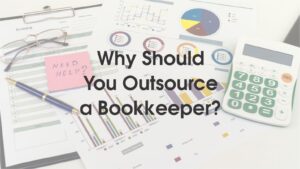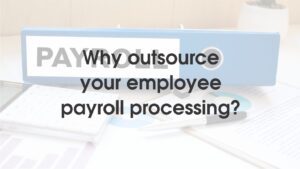How to Minimize Your Business Tax Burden with Effective Planning
As a business owner, you want to keep your finances healthy and ensure you are paying what is required in taxes. However, with the complex tax laws and regulations, it can take time to minimize your tax burden effectively. The good news is with proper planning and preparation, you can reduce your tax bill and maximize your profits. This blog will explore the key steps to minimize your business tax burden with effective planning.
Stay up-to-date with tax laws and regulations.
It’s essential to stay informed about the latest tax laws and regulations that apply to your business. Tax laws are constantly changing, and it’s crucial to know how they may impact your business. The more informed you are, the better equipped you will be to plan and make informed decisions that minimize your tax bill.
Organize your financial records.
Having organized financial records is crucial for tax planning and preparation. This includes keeping track of all income and expenses, receipts, invoices, and other relevant financial documents. Having these records readily available will make it easier to complete your tax returns accurately and on time.
Take advantage of tax-deductible expenses.
One of the ways to minimize your tax burden is by taking advantage of tax-deductible expenses. These expenses, such as business-related travel, advertising, and equipment purchases, can be used to reduce your taxable income. Ensure to keep receipts and documentation for all tax-deductible expenses to support your claims during an audit.
Consider restructuring your business.
Restructuring your business to take advantage of tax benefits can significantly reduce your tax bill. For example, converting from a sole proprietorship to an S corporation or limited liability company (LLC) can provide tax benefits and protect your assets. Consulting with a tax professional or financial advisor can help you determine the best structure for your business.
Defer income and accelerate expenses.
Timing is everything when it comes to taxes. By deferring income to a later tax year and accelerating expenses to the current year, you can minimize your taxable income and reduce your tax bill. However, it’s important to consult with a tax professional to ensure that any deferral or acceleration strategies you use comply with tax laws and regulations.
Take advantage of tax credits.
Tax credits are a direct reduction of the amount of tax you owe. There are various tax credits available for small businesses, including the research and development tax credit, the small business health care tax credit, and the energy-efficient commercial building tax credit. Make sure to take advantage of these credits to reduce your tax bill.
Plan for retirement
Retirement planning can also have a significant impact on your taxes. Setting up a retirement plan, such as a solo 401(k) or a simplified employee pension (SEP) plan, can provide financial security for your retirement and reduce your taxable income.
Hire a tax professional.
Finally, consider hiring a tax professional to help you navigate the complex tax laws and regulations. A tax professional can provide valuable insight, advice, and guidance to help you minimize your tax burden and ensure compliance with tax laws.
Conclusion
By understanding your tax obligations, keeping accurate records, utilizing tax-advantaged business structures, taking advantage of tax deductions, deferring income, planning for retirement, and taking advantage of tax credits, you can reduce your tax burden and keep more of your hard-earned profits. Implementing these strategies will save you money on your tax bill and help you plan for a secure financial future.




